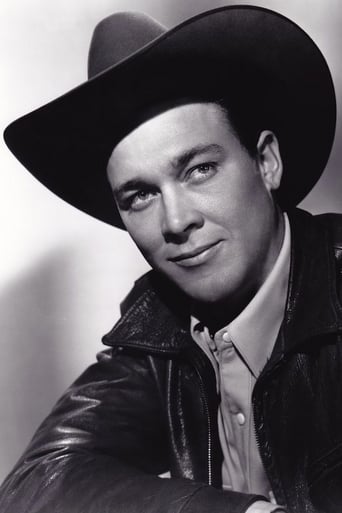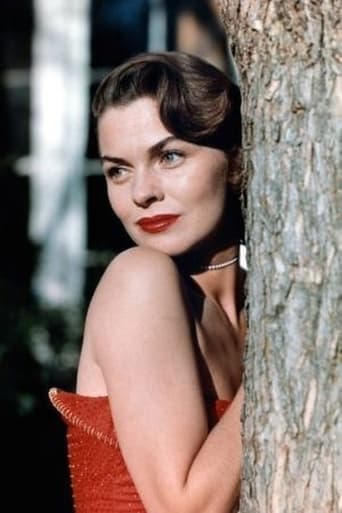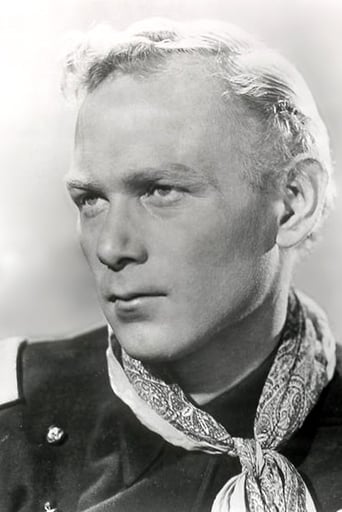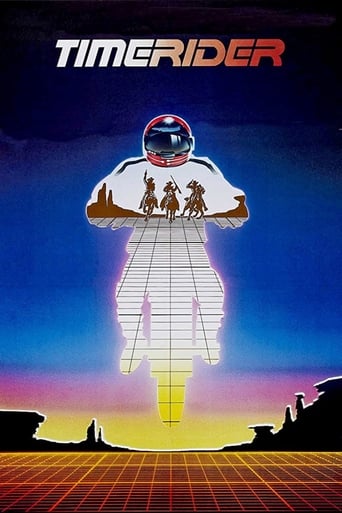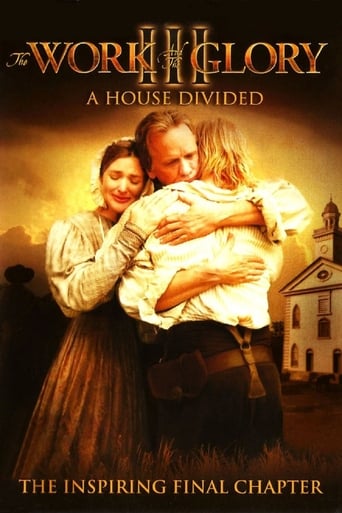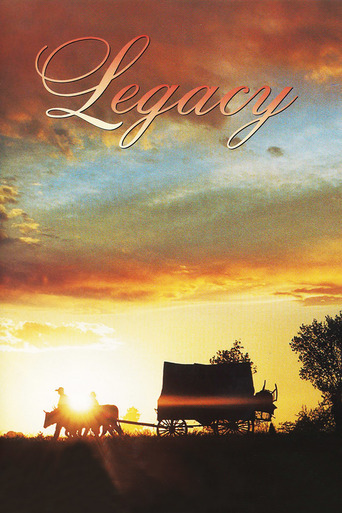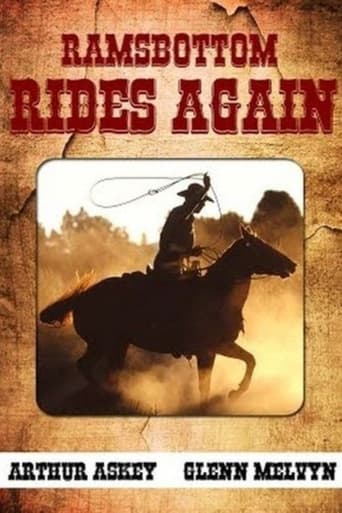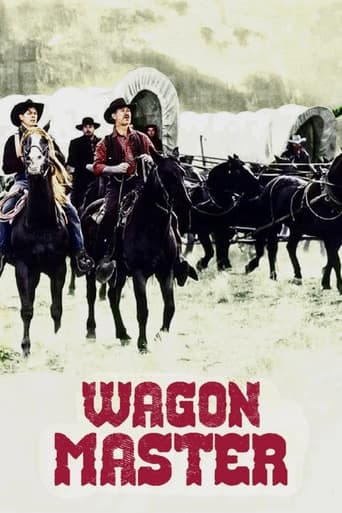
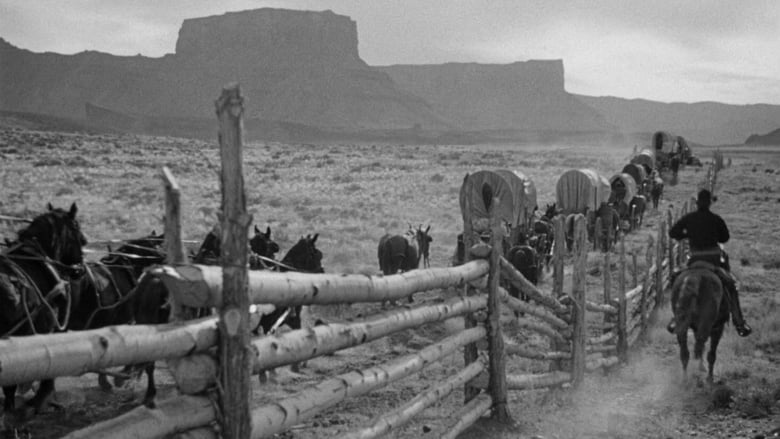
Wagon Master (1950)
Two young drifters guide a Mormon wagon train to the San Juan Valley and encounter cutthroats, Navajo, geography, and moral challenges on the journey.
Watch Trailer
Cast
Similar titles
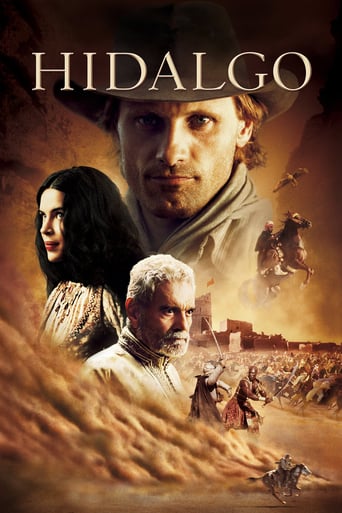
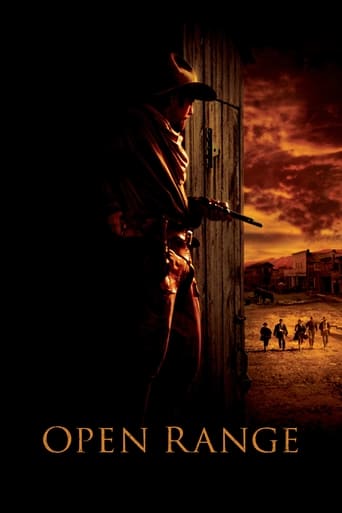
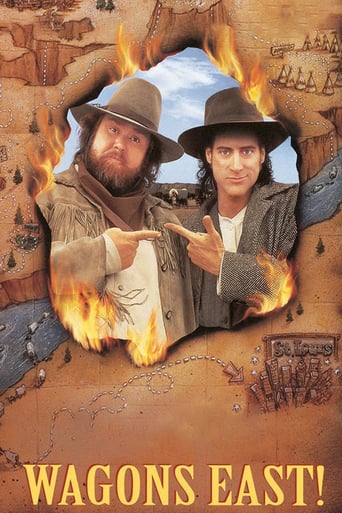
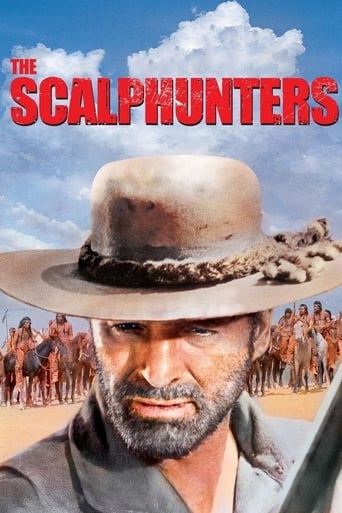
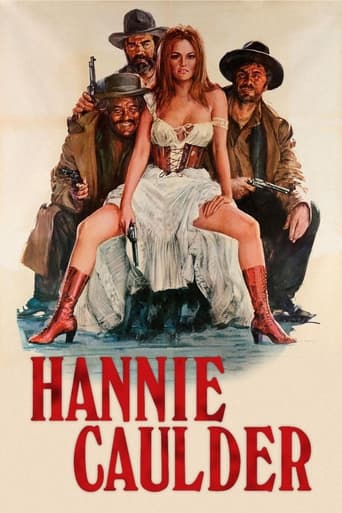
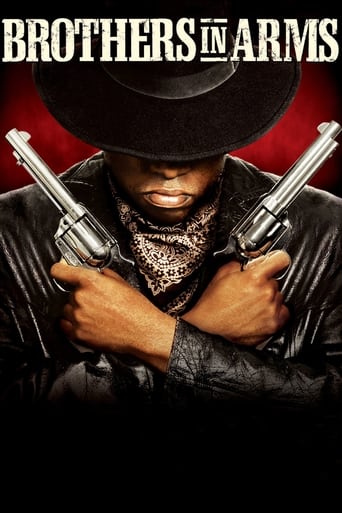
Reviews
I love this movie so much
This is one of the best movies I’ve seen in a very long time. You have to go and see this on the big screen.
Worth seeing just to witness how winsome it is.
It's simply great fun, a winsome film and an occasionally over-the-top luxury fantasy that never flags.
WAGON MASTER is a John Ford western that I didn't think much of. It's a 1950 film but being shot in black and white and on the cheap it looks much older, at least ten years older. The story is a simple one about a wagon train travelling cross country and the encounters with various folk, both good and bad (typically bad) en route.The film features Ben Johnson in the lead role and he plays a Mormon. He's not a particularly sympathetic character here, but then I found the film under-written as a whole. The plot keeps moving on and the wealth of characters that come and go are interesting in themselves, but I felt the story was missing depth. A bunch of familiar faces play in support (James Arness, Ward Bond, the delightful Hank Worden) but in the end, WAGON MASTER is the kind of film that passes you by rather than truly entertains.
An underrated western by John Ford, "Wagon Master" watches as a group of Mormons trek their way toward Utah. They're led by Travis Blue (Ben Johnson) and Sandy Owens (Harry Carey), a pair of horsemen who know the terrain well.As he does in "Drums Along the Mohawk", Ford sculpts "Master" into a giant statement on "what it means to be American". In this regard, Americans are portrayed as bands of ostracised folk who are "pushed out of town" and who must learn to "survive in the wilderness". Here a nation's endurance depends on ordinary folk learning to work together, reconcile disparate agendas, and deal tactfully with other cultures, groups and persons of an "unscrupulous disposition". For all its nods to consensus building, however, and despite its positive portrayal of American Indians (reversing the stance of Ford's "Mohawk"), the film ultimately defers to the law of the bullet; drift too far outside the community, and you will be shot.At its best, "Master" indulges in a number of beautifully relaxed, low-key sequences. These scenes watch as new communities are built, pioneering spirits mesh and different groups (Mormons, criminals, Indians, horse traders, lawmen, prostitutes and show-people) come together. As a jovial myth, the film works well, but there's something dubious about the way Ford's cohesiveness depends on "Wagon Master's" violent opening scene, in which the film's villains announce themselves as bloodthirsty bogeymen.7.5/10 - Worth one viewing.
This film has to be as near to perfect a film as John Ford made. The film is magic, a masterpiece, the reason Ford was, well Ford. If you want to know why Ford was great this one explains it.The photography of course is superb, black and white as black and white should be, wonderful shots, not an over the shoulder conversation in it, pure Ford, great moments, big and little. The famous ripped pants of Ward Bond. Apparently two dogs kept invading the set and fighting so Ford wanted to use them in the fighting scene, but instead of fighting one dog ran away and the other attacked Ward Bond and ripped his pants, which caused Ford no end of mirth. A whole scene around plaiting a rope. The way Ben Johnson burn then snuffs his rope, wonderful foreshadowing and anticipation of the final. Harry Carey's naive courting of Prudence. The usual ford line about being scared and not showing it. Bond's horse accidentally falling in him and its left in the film. Johnson and Bond are fantastic in that scene. Lord help any Ford actor who does not stay in character while the camera is rolling even when a horse falls on top of you.A couple of very sweet romances, not intruding on the whole focus, two very likable leads, not to mention for the girls, the number of times the cameras focus on Ben Johnson's rather delightful backside.Lots of old time stuntmen getting lines and roles, Cliff Lyons, Frank McGrath. Some wonderful character studies mostly of faces staring, all the villains and main stars. A set of villains to rival any group in any western.Many many Fordian shots of faces, groups, children, women, small things happening, foals in the background (Ford seems to love images of foals), women in aprons, allowing the moment as wagons cross rivers and the camera lingers.This is probably not a western as much as an artist's picture that happens to be set in the west.Lucky the film was made in 1950 because it is impossible to imagine such a film could be ever made again, but then it is such a work of art that it would be a sacrilege to attempt it
This small John Ford western with no 'stars' but a cast of character actors is one of his masterpieces. It has a documentary-like feel to it as it traces the journey West of a party of Mormons and it may be the most authentic looking of all Ford's films, (it's on par with "The Sun Shines Bright" which he made a couple of years later).There is a plot of sorts, (a group of bank robbers join the wagon train at one point), but the film's dramatic highlights are almost incidental. The splendid performances of Ford's stock company, (Ben Johnson, Harry Carey Jr, Ward Bond, Jane Darwell etc), adds considerably to the film's authenticity while the nearest the film gets to a full-bodied star performance is Joanne Dru's Denver. Dru was a much finer actress than she was ever given credit for as were Bond and Johnson, who at least was finally awarded with the recognition of an Oscar for his work in "The Last Picture Show". As he said himself, 'It couldn't have happened to a nicer fella'. Add Bert Glennon's superb location photography and you have a genuine piece of Americana that couldn't have some from anyone other than Ford. This is a film that truly honors America's pioneers and is full of sentiment and feeling.
